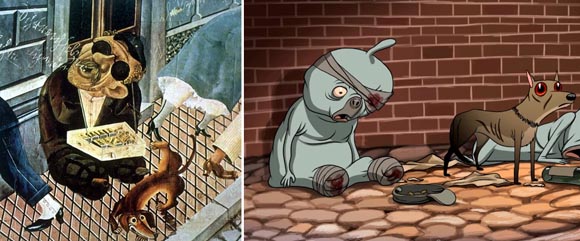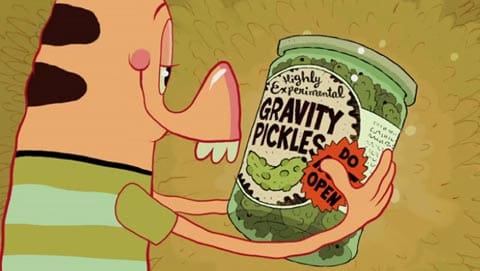Oh look at me, look at all this stuff I do, Aren't I great, aren't I busy?
Oh look at me, look at all this stuff I do, Aren't I great, aren't I busy?
By Nick Cross
By Nick Cross
To the uninitiated, writing appears to be a simple process of putting words onto the page. But the fact that I’ve re-written the sentence you’ve just read six times seems to indicate that perhaps it’s not that easy. To write well requires us to make a deep personal connection with the material, and this is where the trouble starts.
Ernest Hemingway famously said:
“There is nothing to writing. All you do is sit down at a typewriter and bleed.”
“Day after day I wrote less and less until finally ... I just stopped. I didn’t want to be in this dark place. I had enough darkness going on in my life.”
Resilience is the process of adapting well in the face of adversity, trauma, tragedy, threats or significant sources of stress — such as family and relationship problems, serious health problems or workplace and financial stressors. It means "bouncing back" from difficult experiences.
 |
| The darkest of my recent stories |
Rumination is the compulsively focused attention on the symptoms of one's distress, and on its possible causes and consequences, as opposed to its solutions.
“Usually after a show he felt a huge come-down. He felt isolated, it gave him a huge low.”
By Nick Cross
Hello again, slush fans. As anyone who's seen my Museum of Me series will attest, I like to keep hold of stuff from my past and inflict it upon share it with my loyal readers. Now that I've been writing seriously for a decade (actually slightly more, but 10 & 3/4 years didn't sound as good) it felt like time to take stock of my journey so far. And what a journey it hasn't been. Well, not in
The creator of "Adventure Time" and other artists created a special episode of "Uncle Grandpa."
Add a CommentThis week in Vancouver, the Spark CG Society will hold its annual Spark Animation conference and festival with an impressive group of presenters including Glen Keane, Nora Twomey, Roger Allers, Robert Kondo, and Graham Annable.
Add a CommentLast week at San Diego Comic-Con, Cartoon Network offered the first look at "Over the Garden Wall," a ten-episode fantasy mini-series that will debut this fall.
Add a Comment
Canadian filmmaker Nick Cross (Yellow Cake, The Pig Farmer) took a break from production on his one-man feature Black Sunrise to make the animated short Perihelion.
Cross describes Perihelion as “a sort of animated tone poem…that toes the line between narrative and non-narrative, essentially having no real beginning, middle or end.”
The film draws upon his appreciation of fine art, particularly German Expressionism and Surrealism:
Visually, I was heavily inspired by the work of a number of German painters from the early 20th century. Notably: Otto Dix, Richard Oelze, Ingrid Griebel-Zietlow, Rudolf Schlichter and Max Ernst, as well as Francisco Goya. This is sort of a tribute to the work of these artists living in a time of Fascism and impending war, which really informed their work in a distinct way.
Fans of those classic artists will enjoy spotting the visual references, like this one:


A few weeks ago, I posted a teaser trailer for PigGoat BananaMantis!, a project developed for Nickelodeon by Dave Cooper and Johnny Ryan, and animated by Nick Cross.
Nickelodeon had already passed on the project at that point, but after the enthusiastic reaction it received online (including on Cartoon Brew), they’ve revived the idea. Johnny Ryan told VICE magazine yesterday:
[Nickelodeon] helped us make this little teaser trailer cartoon. They really liked the way it turned out and wanted to go on to the next step and develop a pilot. We wrote and storyboarded a pilot episode which they didn’t like so they wound up passing on the whole thing. Fast forward a few months later and animator Nick Cross posted the original cartoon on his site where it got a really positive response. I think this made Nickelodeon rethink their decision and they decided to revive the project.
So now we are going back into development to try and make it work. We haven’t really worked out all the details yet as far as how many episodes and all that stuff. I only just found out that they wanted to try this thing again yesterday.
Cartoon Brew |
Permalink |
One comment |
Post tags: Dave Cooper, Johnny Ryan, Nick Cross, nickelodeon, PigGoatBananaMantis!, Pilot
Related posts:

A few weeks ago, I posted a teaser trailer for PigGoat BananaMantis!, a project developed for Nickelodeon by Dave Cooper and Johnny Ryan, and animated by Nick Cross.
Nickelodeon had already passed on the project at that point, but after the enthusiastic reaction it received online (including on Cartoon Brew), they’ve revived the idea. Johnny Ryan told VICE magazine yesterday:
Add a Comment[Nickelodeon] helped us make this little teaser trailer cartoon. They really liked the way it turned out and wanted to go on to the next step and develop a pilot. We wrote and storyboarded a pilot episode which they didn’t like so they wound up passing on the whole thing. Fast forward a few months later and animator Nick Cross posted the original cartoon on his site where it got a really positive response. I think this made Nickelodeon rethink their decision and they decided to revive the project.
So now we are going back into development to try and make it work. We haven’t really worked out all the details yet as far as how many episodes and all that stuff. I only just found out that they wanted to try this thing again yesterday.
by Addy Farmer The blog that never ends. More choices of words that move from me and you... Behind the tired old words, Tog heard the harsh grate of fear and loved Allanza even more for his stupid bravery, even though the prat had got them into this mess. J.P. Buxton - I Am The Blade I love this book and I love these words. Here, we arrive just at this point when our hero, Tog realises what
By Jo Wyton How much marketing is an author expected to do? How much does marketing cost? How do you go about marketing your book? What the hell is marketing? All questions posed by Nick Cross at the recent SCBWI retreat. He was faced with a standing-room-only room of writers: some aspiring, some nearly there, and others already there and figuring out answers to the above questions right now.
Nick Cross is one of the most exciting independent talents working today. He’s currently hard at work on his most ambitious project yet – a feature length film called Black Sunrise. Nick’s just completed a trailer for it (below) and is writing a companion book documenting the film’s production. I’m particularly excited about this film, and the footage looks incredible. For more information on this epic project-in-progress, I refer you to the Nick Cross Animation blog. Go Nick!
Cartoon Brew: Leading the Animation Conversation |
Permalink |
No comment |
Post tags: Nick Cross
Another gem from the awesome animator, Nick Cross. Gorgeous animation gives way to nightmares, ending with poignant social commentary. Don’t watch it with your kids, but do watch it.
The Pig Farmer (by Nick Cross)
What with all the hubbub over Flash these days, it’s nice to see an artist utilize the program as a means throughout the process of animating, not using it as a crutch. Animator and filmmaker Nick Cross gives us a detailed account of his process when he animates in Flash, including video. It’s a fascinating look into how Nick works as well as how he’s able to use Flash without making it look like it was done in Flash. Just good ol’ animation skills that can’t possibly be replicated by a computer program.
Posted by Ward Jenkins on Drawn! The Illustration and Cartooning Blog |
Permalink |
No comments
Tags: Animation, flash, Nick Cross, penciltest
Enjoy Yellow Cake, the latest animated epic by Ottawa animator Nick Cross. In production since 2006, Yellow Cake is the follow-up to Nick’s The Waif of Persephone.
Posted by John Martz on Drawn! The Illustration and Cartooning Blog |
Permalink |
No comments
Tags: Animation, Nick Cross, video
YAY!!!!!!!!!!!!!!! This short was very good, Nickelodeon happily could well appreciate this short, I hope that this series will be Good.
Nickelodeon? They funded it? Wow, I was almost certain it was CN just by the style. Of coarse I question why these established animators and artists even need so much funding and network support in this day and age when this supposed amateur Aaron Long kid keeps popping up and throwing out these rival cartoons, animated by all by him on a dime. I guess it’s time and quantity. You can only produce these things so fast, and when it’s just you, keeping an audience engaged and staying relevant would be a nightmare with 2D. So you need to hire people, get better equipment, etc, and thus get into the big costs. Still, it shows how conservative and out of touch Nick animation execs have become. You’d think it would be the opposite due to the map stapling success they got from it in the 90s. CN’s seemed to loosen their belt a bit in the late 00s, and they seem to be doing just fine now. Nick on the other hand seems to be squeezing what ever else they can get from 13 year old Spongebob and beating this anime style “Kora” thing vigorously, and they’re ratings are declining? I’d say it’s time to get some new leader ship, and give some shown new creative talent a chance.
I’m sure the recent management shakeup at Nickelodeon, with Brown Johnson leaving, had something to do with the revival of the project. Nick’s ratings are not good and something had to be done.
The fact that the web has proven that this has an audience makes it easier for the suits to take a chance on it.
It’s all about having an audience. If you can create something that has one, people with money will beat a path to your door.
It’s happening. Even after the horrible things things cartoon brew readers said about Nickelodeon on the comments. :)
Kudos. This has a lot of potencial.
I hope it works out, but i guess Nickelodeon is a little scared of creative people. So i wonder how long this will last.
I absolutely loved the PigGoatBananaMantis trailer, so this makes me very happy indeed. It’s comforting to know that Nick is taking more creative risks (especially after their recent management shake-up) and is giving this project a second chance.
I’ll definitely be rooting for this to make it past development; it’s high time Nick have a another ORIGINAL cartoon on their network. Who knows? Maybe it’ll knock Spongebob down a few pegs.
Oh thank God.
Maybe Nick isn’t as incredibly stupid as they’ve acted over the past decade.
Spongebob’s already been milked to complete zombification, they only gave Kora 2 short seasons, Fairly odd parents is in the same boat as Spongebob, and the Dreamworks shows lack the charm of the films.
I honestly don’t know how they’ve survived this long on such few series.
So Cartoon Brew may have helped revived this cartoon? That deserves a round of applause!
Hopefully Nick able to give Cross, Cooper, and Ryan the shot they deserve next time around.
Re:
“So now we are going back into development to try and make it work. “
Wha? The teaser/trailer as-is works like crazy.
PigGoat BananaMantis is the best obscure member of the Avengers, if you overlook the gratuitous cleavage and goofy mysticism.